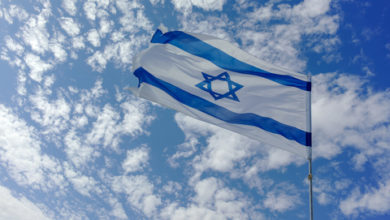The Ethics of the Prophets
Bible critics insist that the prophets guided the people of their generation about moral principles only and were not interested in religious rituals. Their proof, as is quoted by Rabbi Yehuda Halevi in the Kuzari (Volume 2, 47), is from a verse in this week’s Haftara: “Does G-d want to be appeased by thousands of rams, by tens of thousands of streams of oil, shall I give Him my firstborn as an atonement, the fruit of my womb to appease my soul? He tells you, mankind, what is good and what G-d wants from you – merely to do justice and to love kindness, and to go in humility with your G-d.” [Micah 6:7-8].
Rabbi Yehuda Halevi gave the critics a worthy response. The prophets were talking to a society which had not even observed the most basic moral requirements. In such a culture, to become involved in exalted heavenly pursuits is nothing more than a travesty, which can be described by the verse, “a sacrifice by a wicked person is an abomination” [Proverbs 21:27]. This is not true for one who has acquired a basic level of morality, and a sacrifice by such a person is very welcome. “They will favorably be brought up on My Altar, and I will glorify My House of Splendor” [Isaiah 60:7].
And this makes it clear why the criticism of the sacrifices is juxtaposed to the actions of Balaam and Balak. “My people, just remember what Balak, the King of Moab, advised, and what Balaam replied to him” [Micah 6:5]. Balaam and Balak thought that offering sacrifices is something that is good in its own right even if it would serve such a terrible purpose as eradicating Israel, and they therefore brought more and more sacrifices. But in the end it was clear that the ethical principles that were upheld by the nation of Israel were much more important in setting the actions of the Divine guidance than the sacrifices by Balaam and Balak.
The exalted values operate within history through the nation of Israel, and they are the justification for its existence for all eternity. But they do not depend on the extent to which the nation remains loyal to them. Just the opposite may be true – at times it may seem to the casual observer that the Children of Israel do not adhere to the restrictions of general ethical behavior. However, one who sees the general viewpoint that can be seen from the tops of the mountains, “I will view him from the tops of the cliffs” [Numbers 23:9], can still say “How good your tents are, Jacob [24:5], even when Israel are camped in Shitim and turn to vain actions. Evidently this is what the prophet hinted at when he wrote, “From the Shitim to Gilgal” [Micah 6:5] – both when the people are their lowest level, that of Shitim, and when they are occupied with the exalted service in the Tabernacle at Gilgal.
The moral values which Israel is passing on to the world begin first of all with, “to do justice.” That is, justice is a precursor that validates the trait of kindness. That is how the nation of Israel acts in its wars, whose purpose is to get back the land from those who stole it and to avenge the blood of those who were exploited. This then leads to “love of kindness,” referring to a desire to do good to all of the creatures. And going in “humility with your G-d” is an expression of the highest possible role, to form a link between the world and the Divine. The secrets that are hidden from all the other creatures, which are the exclusive heritage of the Children of Israel, are what make them an appropriate channel for revelation to the entire world.
Source: “AS SHABBAT APPROACHES” – a biweekly column in Shabbat B’Shabbato (Zomet Institute) See: http://www.zomet.org.il/eng – Balak 5775, issue 1581.




